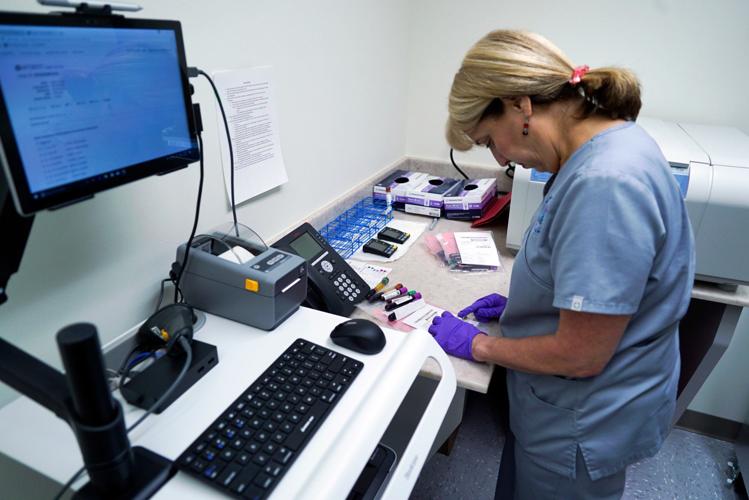The University of Arizona will have a role in a major national study that aims to include DNA and health data from 1 million people across the U.S.
The $1.45 billion National Institutes of Health study, called the All of Us Research Program, grew out of what was called the Precision Medicine Initiative Cohort Program.
The UA was also part of the Precision Medicine program and had been awarded $43.3 million over five years. All of Us increases that UA award up to $60 million over five years, UA officials said Thursday.
The UA’s goal is to find 100,000 of the 1 million people, which will be possible via its affiliation with Banner Health, said Dr. Andreas Theodorou, chief education officer for Banner University Medical Group and a principal investigator on the award.
The researchers are aiming for a broad and diverse cohort, he said. They’ll look at genetics, lifestyle and environment, and link it to the individual’s health.
The national All of Us Research Program launches Sunday.
For now, only Banner Health patients ages 18 and older will be able to enroll locally. Information about enrolling is expected to be available at Banner’s local facilities starting next week.
“The goal is to change the way we do medical research and the way we look at health prevention and disease treatment. That is why it’s so big and so costly,” Theodorou said.
“We hope to keep all those folks who sign up in the system for at least 10 years. It’s important to note that all the data is de-identified — the individual’s identity is separated from the collection of data that will be used by the investigators.”
No standard treatments
Study volunteers will contribute a wide range of health, environment and lifestyle information, such as diet and sleep habits, with a long-term goal of helping researchers and clinicians develop individualized care.
“If you think about it, this will capture people who have common diseases and people who have very rare diseases, and make it easier to ask and answer questions about them,” Theodorou said.
“For example, if you know people who have the same disease like diabetes, cancer or chronic pain, why does one treatment not work for all of them?
“Some people get a given treatment and it works, some people get the same treatment and it doesn’t work. We’re all just different enough that standard treatment isn’t good enough for everybody.”
The NIH says it has taken extensive measures to ensure protection of patient information.
“What we’re doing with the All of Us Research Program is intersecting with other fundamental changes in medicine and research to empower Americans to live healthier lives,” National Institutes of Health director Dr. Francis S. Collins said in a prepared statement.
UA officials say the UA Health Sciences/Banner effort will focus on the inclusion of Hispanic/Latino and American Indian/Alaskan Native participants and communities to gain greater insight on disease prevention and treatment.
“Keep in mind, many groups of people are underrepresented in biomedical research data and therefore things that we discover don’t necessarily work for them,” Theodorou said.
“One of the goals of the project on a national basis is to be inviting to all folks in the U.S. regardless of what population they belong to, their socio-economic status, health or wellness status.”
Banner factor
Genetic testing and the ability to manage big data provides opportunities now that have not been historically available, Theodorou said.
He said the UA was selected for the award based on its expertise in population health, as well as its affiliation with Banner Health. Banner is Arizona’s largest private health system.
Phoenix-based nonprofit Banner Health was the surviving entity following a merger with the locally owned, nonprofit UA Health Network.
Banner now owns Banner-University Medical Center Tucson, 1501 N. Campbell Ave., and operates Banner-University Medical Center South, 2800 E. Ajo Way, through a lease agreement with Pima County. The merger included an academic affiliation between Banner Health and both of the UA’s medical schools.
“That combination led to a team that was perfect for this type of research,” Theodorou said.
The additional UA principal investigators for the award are Dr. Akinlolu Ojo, associate vice president for clinical research and global health initiatives at the UA, and Dr. Eric M. Reiman, executive director of the Banner Alzheimer’s Institute, chief executive officer for Banner Research and UA professor of psychiatry.
The large data set that’s expected to result from the study could also identify the causes of individual differences in response to commonly used drugs, as well as uncovering biological markers that signal one’s risk of developing common diseases, UA and NIH officials say.
“It is a large award and we have a responsibility to put our A-Team behind it and work with the community to make it successful,” Theodorou said. “This could change how we deliver health care.”





